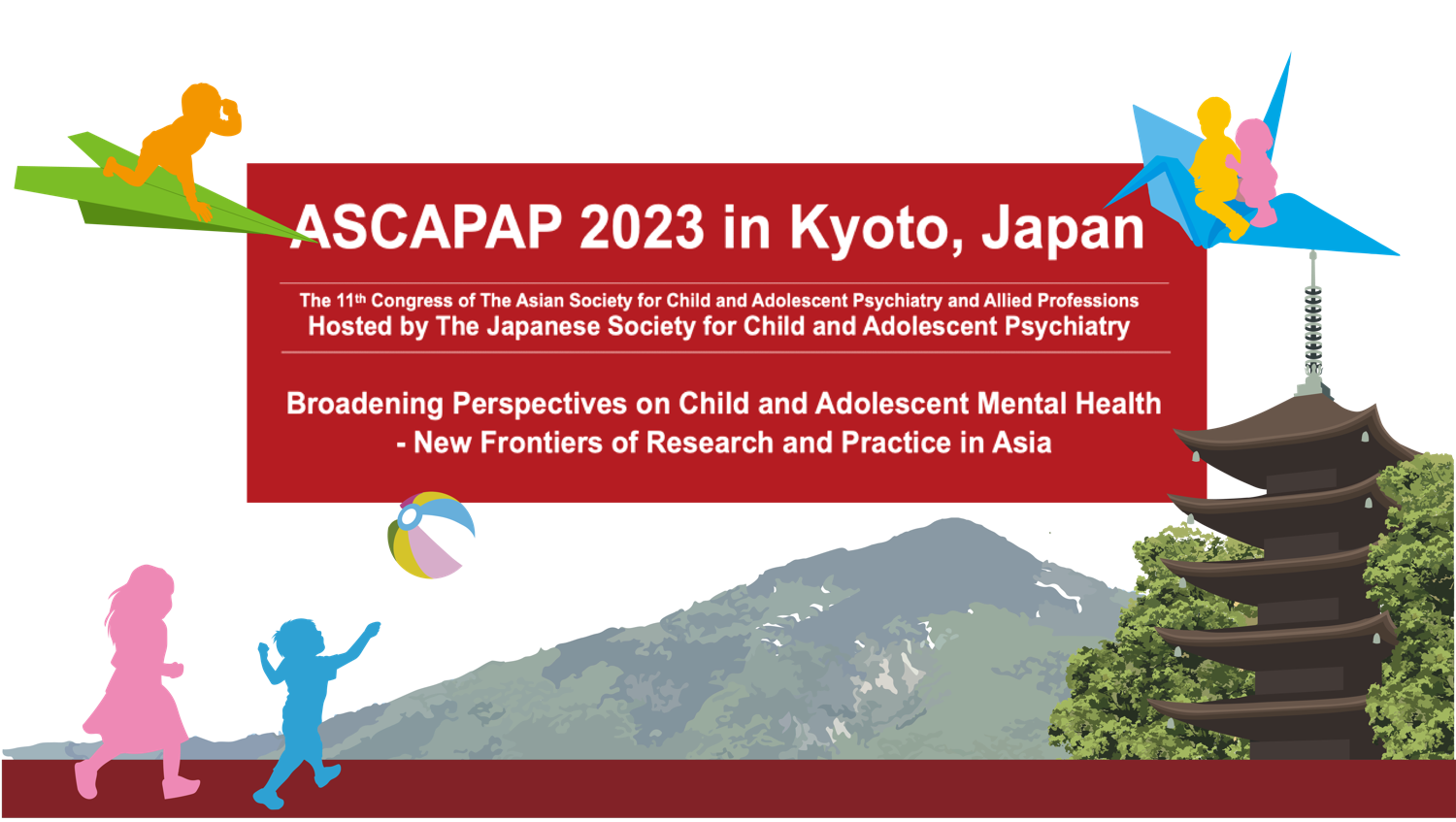Ladies and gentlemen, welcome to ASCAPAP 2023 in Kyoto. My name is Takashi Okada, President of the Japanese Society for Child and Adolescent Psychiatry, and I am honored to serve as the Chair of this Congress.
Let us reflect on the significant milestone /in history when Japan, in 1990, became the first Asian nation to host the annual congress of IACAPAP at the Kyoto International Conference Center. In 1996, ASCAPAP was established through collaboration with Asian nations, and Japan proudly hosted its first meeting in Tokyo. Since then, ASCAPAP has flourished, with subsequent meetings held in Seoul, Taipei, Manila, Singapore, Beijing, New Delhi, Kuala Lumpur, Yogyakarta, and Chiang Mai. In 2019, the baton of responsibility for the second chapter was entrusted to us, compelling us to promptly assemble a dedicated organizing committee and embark on meticulous preparations to ensure the resounding success of ASCAPAP in Japan.
However, it is important to acknowledge that the history of ASCAPAP has not always been without challenges. Throughout its illustrious trajectory, there have been occasions when dates had to be adjusted due to political instability or the spread of infectious diseases. As we are all aware, the formidable COVID-19 pandemic has presented unprecedented challenges on a global scale. It has swiftly disseminated across the world, leading to changes in travel regulations and making it difficult to fathom gathering together with our esteemed colleagues. There was a time when we contemplated organizing a virtual congress. However, wise and invaluable advice from Dr. Yoshiro Ono urged us not to forget the spirit of ASCAPAP. The Congress’s primary purpose is for our members to meet and engage in meaningful communication. The organizing committee unanimously agreed with his suggestion, leading us to postpone ASCAPAP from 2021 to this year, 2023. It brings us immense pleasure to convene and inaugurate a new chapter of ASCAPAP in Kyoto.
The impact of COVID-19 has affected people worldwide, irrespective of social status, wealth, race, or psychosocial situations. However, its repercussions have been particularly pronounced among socially vulnerable children. In Japan, the number of children unable to attend school is increasing, as is the incidence of adolescent suicides. The severity of child abuse and bullying has escalated, while children with neurodevelopmental disorders face heightened externalizing behaviors, placing additional burdens on their families. Economic disparities have left many children in impoverished circumstances, and some are even forced into caretaker roles for their families. Let us widen our perspective to enco mpass the world at large. While I have had the privilege of receiving vaccinations multiple times, it is disheartening to recognize that numerous children have been denied the opportunity for this critical protection. As we savor
our coffee, let us not forget that the very beans that contribute to our relaxation may have been harvested by underprivileged children. Professionals must embrace a global outlook, focusing on the mental health and well-being of children.
Although we will soon overcome the challenges posed by COVID-19, we must confront another pressing issue. Undoubtedly, we cannot tolerate war. While we commend the courageous leaders who resist larger nations, we must also scrutinize the reality. Countless weapons from around the world have been consumed, destroying lives in their wake. Many children have lost their families, and some have tragically lost their own lives. When the need for heroes arises, we must exercise caution and wisdom. In times requiring collaboration between countries or the isolation of specific nations, we must work together. Today, as we gather, nationalities and borders hold no significance. We are united as collaborators residing on this Earth.
In the ASCAPAP 2023 logo, there is a crane. Japanese children can fold a square paper to make a crane. Sometimes, we make a thousand cranes, as they hold a special meaning for us. We send these thousand cranes to sick children, symbolizing our hope for their early recovery.
A thousand cranes can also be dedicated to praying for peace. Notably, the G7 summit was held in Hiroshima, a city where an atomic bomb was dropped in 1945. Many children lost their homes and families as a result. After the war, an orphan facility was established in Hiroshima, which continues to exist today.
What kind of future do we envision for children? Within our minds, we possess ambition, vanity, and love. Time may provoke our darkness, which is why the collaboration of child and adolescent professionals becomes crucial during such periods. We must share wisdom to create a better future and learn from history and our esteemed predecessors.
We are deeply saddened by the news of Prof. Kosuke Yamazaki’s passing. He served as the Secretary General of the 1st ASCAPAP and understood the significance of cooperation among Asian professionals. With all of you, I declare our commitment to contributing to child and adolescent mental health worldwide through cooperative efforts. I firmly believe that ASCAPAP 2023 presents a valuable opportunity. Thank you very much.
Takashi Okada
Congress Chair, ASCAPAP 2023 in Kyoto
